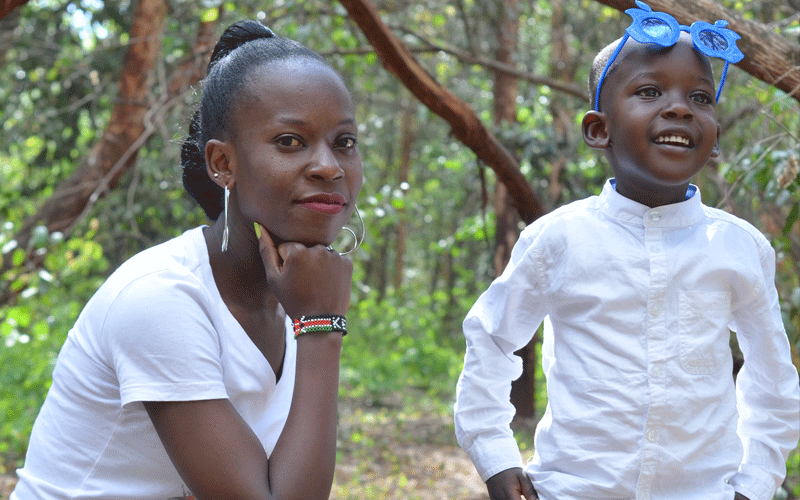What kind of mother are you?

Love them or hate them, mums play an important role in nurturing and brooding a young life. But all mums are not the same…
Jasmine Atieno @sparkleMine
Having been raised in a family of 12 children without the help of a nanny Linda Opiche looked up to her mother.
Her mother played the role of a teacher, cook, doctor, disciplinarian and a role model, among others.
“When it came to parenting, she gave it her all. We would always pray never to be caught on the wrong side, because if we did, we would face the music.
When our dad passed on in 2004, she took the mantle and shaped our paths single handedly.
She defended us when necessary and always worked so hard to give us a life close to what we had when our dad was still alive,” says the teacher/barber who is also a mother to a five-year-old.
Raising a child in this modern day is not easy, but for Linda, she says it has been smooth because she learnt from the best.
“My son is five years, but I assign him duties in the house. He sets up the table, give thanks for the food and helps in clearing the table when we finish our meals.
Whenever he is on the wrong, he knows he has to say sorry, and thank you when he is given something.
I try to instil in him the spirit of giving and sharing just as my mother did. When it comes to correcting him, I make sure to find the best way to do it,” shares the 30-year-old mother of one.
According to Simon Mbevi, founder and director, Transform Nations, a faith-based non-profit organisation, one’s mothering style shape the life of her children.
In a Zoom meeting dubbed ‘The mom factor’, the counsellor and relationship coach broke down the six types of mums.
Detached mum
Attachment comes in three forms; affection, affirmation and acceptance. Attachment begins in the womb and through it, a child learns basic trust and love.
They then grow and understand life. Whenever they are hurt, the first person they run to for safety is mum.
When a child grows up with a mum who does not provide affection, affirmation and acceptance, the results will be a lot of relational issues and hostility.
“In order to deal with these results, forgive and let go as forgiveness is a gift to self.
Learn to set limits for the relationship with mum, reconcile and foster the relationship.
Confront and accept the situation because your mum is still your mum no matter what,” he advises.
Fragile mum
When we are young, every emotion is fragile. It is the mums who teach children how to deal with emotions.
“Children who grow up with fragile mums are over pestering, over nurturing, over aggressive or sometimes just withdrawn.
Some emotional results of this are depression, anxiety, addictive behaviours, they become career snags and also poor problem solvers,” shares Mbevi.
Controlling mum
Children need to learn interdependence. “In order for this to happen, a mother needs to frustrate their need for dependence,” he says.
A controlling mum won’t let you be and always want you to lean on her. “In order to become your own person, you will need to develop a separate will and create your own identity while also embracing and dealing with dependency.
The relevant skills in becoming you include knowing your defining traits, dealing with the victim role, developing proactivity while setting and respecting boundaries,” says Mbevi who is also an author.
Ideal or trophy mum
She only accepts you when you are ‘ideal’. As a result, the child grows up to have narcissistic tendencies, perfectionism and may deal with emotional problems such as depression, anxiety, shame and guilt.
“Instead of always running to mum for affirmation, get real. Find friends where you find humility, no condemnation or denial and those who will confront and accept the real you.
You can deal with the ideal mum by processing the hurt feelings you both have and forgiving one another. Help her understand you as much as possible,” says the expert.
Still-the-boss mum
She always uses phrases such as “no matter how old you are, I will always be your mother,” and “You will always be my kid.”
As a mother, it is your role to prepare the child for adulthood by developing the child’s emerging functions and abilities.
Teach core values and encourage critical thinking to help the child gain awareness and develop their unique skills and abilities.
As a teenager, the child needs a safe passage to adulthood hence shift from parenting by control to parenting by influence.
A child growing up with this type of mum will be afraid of disapproval, will hate all parents, and as a result could also have anxiety and depressive traits.
In order to deal with this kind of mum, one would need to challenge the messages passed by their mums.
“Talk through it and reach a respectful adult agreement. If she gets hostile, act responsibly,” he advises.
Never leave mum
This mum is never ready to let their child go. As a mother, it is your role to prepare your adolescent to experience the larger world, prepare him/her to handle the increasing power of the peer group, prepare them to live with the increasing experience of the limits of the outside world and also gear them towards financial independence.
When you grow up with such kind of mum, it is easy to abandon your partner for your mum.
This mum seeks to live out her dreams through you. What you need to do is leave home right away and when you can.









